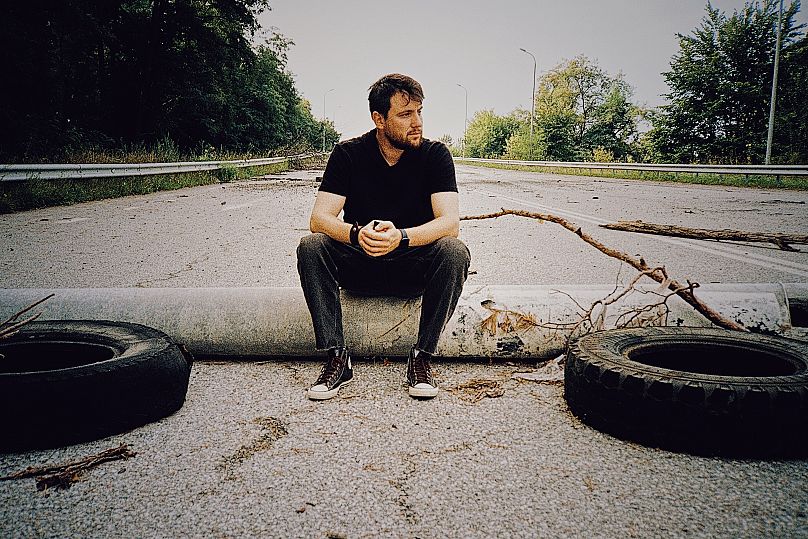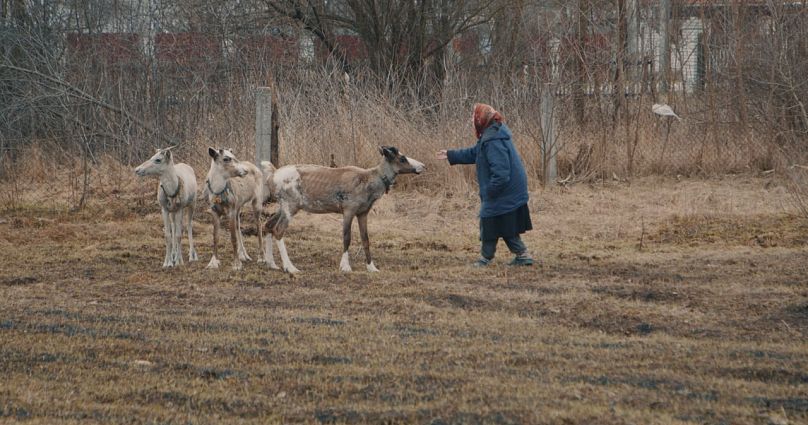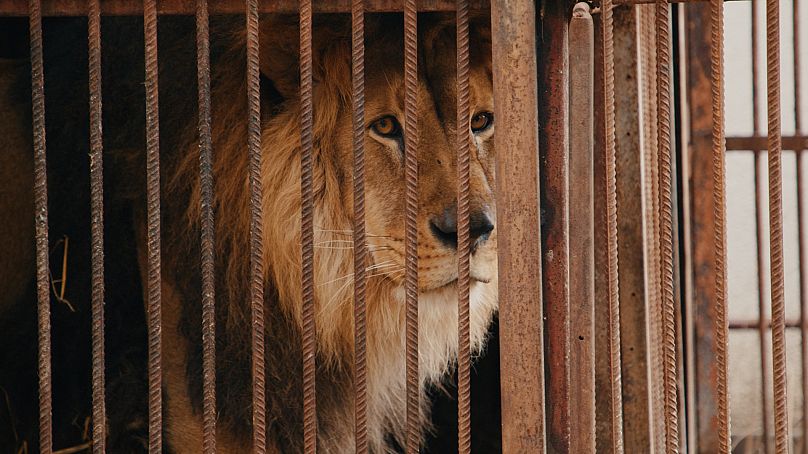Stanislav Kapralov could have stayed away from the war in Ukraine. But when he found out his dog was missing in Kyiv, he packed up his camera and went searching. He discovered a country of people risking their lives to save animals.
“I hardly slept that night before the war. I had a clear intuitive feeling that it would begin that day.”
On the day Russia invaded, Ukrainian filmmaker Stanislav Kapralov wasn’t in danger. Holidaying with his family in the mountains near the Polish border, he was safe from the shelling that had reached his home in Kyiv.
As Kapralov watched the awful news of his country’s bombardment, he called his parents. They had evacuated Kyiv, but had stayed long enough to see the effect the bombs had on the family dog, Nika. Terrified by the noise, Nika ran off into the destructive night.
Kapralov felt there was a clear decision to make. He told his wife to take their child and leave for Poland. He would return to find Nika.
The search for Nika took Kapralov across Ukraine. What started as the search for one lost dog turned into the discovery of many people working tirelessly to save animals from the violence of the ongoing war. Chronicled in Searching for Nika, Kapralov’s documentary asks why, even at times of great human suffering, humanity never loses sight of caring for the innocent.
It all starts with that perilous journey Kapralov took back to Kyiv, desperate to find his dog. As he drove east, the roads were filled with traffic going in the other direction. “We didn’t know the situation at all,” he recalls. The news changed by the minute and they were unsure if they’d be entering a foreign-occupied city.
“The city was empty. It looked like an apocalyptic movie,” Kapralov tells Euronews Culture. Despite the obvious peril though, he was sure-minded.
“I realise we needed to do it. We couldn’t leave Ukraine. It’s a historical moment and it's very important to try to help.”
It’s an admirable thought, but surely his wife would have rather he’d escaped the war-torn land to Poland with her... For Kapralov, it was not so simple. Firstly, Nika was a childhood friend. He couldn’t abandon her that simply. And secondly, Kapralov knew that filmmaking was the best way he could help his country.
Before the war began, Kapralov was mid pre-production on a Hollywood project that was due to film in the Chernobyl region.
“Some people took up guns, some people use information as a weapon,” Kapralov explains. As part of the country’s filmmaking community, he saw it as his job to pick up his camera and make the films that would show the West what was happening to Ukraine.
We now know that the West would go on to support Ukraine in resisting Russia’s advances, but at the beginning of the war, that wasn’t guaranteed. If Kapralov could film his experience of Kyiv as he searched for his lost dog, the chance those images could change the way the outside world saw this war was too important to miss.
The film that resulted is far bigger than anything Kapralov expected.
On his journey, Kapralov met people risking their lives to care for animals. Pets and zoos had been abandoned in the confusion of incoming war, but Kapralov was meeting people who had refused to leave the animals behind.
“They are the most innocent and ignored victims of the war,” Kapralov states.
In the city of Bucha, which suffered a horrifying massacre at the hands of Russian forces at the beginning of the war, Kapralov met Alex, an actor who’d dedicated himself to saving abandoned cats from the city.
In another region, the filmmaker found Alexandra. Before the war began, Alexandra ran one of the biggest dog shelters in Europe, housing over 3,500 animals. The shelter fell under occupied territory on the first day of the war. She couldn’t leave the dogs to die, and has continuously risked her life to collect food, run field kitchens and corral support to keep the animals fed.
Animal rights charities like URSA and UAnimals also feature in the documentary, for their efforts to save and protect animals at risk of the war’s effects. The full trailer for the film is available here.
These stories motivated Kapralov to continue finding more and more people doing amazing things in the name of animal lives. Once again though, the question of why these people are doing this over prioritising human tragedy comes up. The answer is simple.
Kapralov wants the world to see that when the world turned upside down for them, Ukrainians never lost their humanity. While in his documentary he finds fields with horses burnt to death, or a farm with ostriches shot for fun by Russians, the message is clear: even during war, there is space to care for innocent animals.
Speaking about the process of getting the documentary made, producer Taras Stadnikov emphasises the point. “We consider animals as like a defenceless minority. It reflects the way we treat our minorities and societies.”
“When the war started, I lost my understanding of humanity, my world was destroyed,” Stadnikov tells Euronews Culture. “Rationally speaking, they’re just animals,” he continues. The animals could never thank any of the people making these death-defying efforts, but watching Ukrainians make those feats anyway, “that brought me my hope back.”
Stadnikov explains that the film is complete and alongside production companies FishCorb Films and Inner Gravity Pictures, are in search of distributors as it heads to the festival circuit.
As Searching for Nika gains traction, it's the pair's hope that the story will not bring just anger at the destruction the Russians have wrought. “We need people to understand we have hope. That we are united together and fighting for our independence, for our freedom and for our future," Kapralov says.
Alongside the documentary, they have created a page to donate to charities supporting animals in Ukraine.
But did Kapralov eventually find Nika? The answer to that, however, is too much of a spoiler to reveal.














